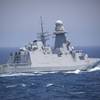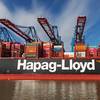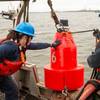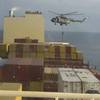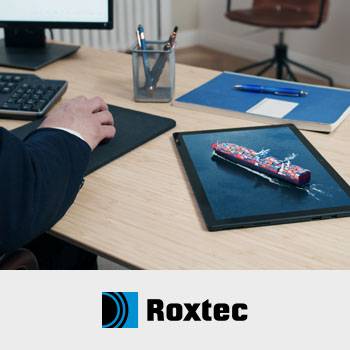The global economy remains in a state close to recession, and although authorities are trying to stimulate growth using methods such as reducing interest rates, it is not anticipated that any real improvements will be seen until the year 2000, reports Drewry Shipping Consultants Ltd. in a report detailing various aspects of the shipping industry. Prospects for industry, the report states, remain difficult.
Tankers
Tanker market conditions are being exacerbated as a result of consolidation in the oil sector. The increase in competition is forcing owners to reassess their strategic goals and financial standing and inevitably this is leading to a similar process of amalgamation in the tanker sector. The increasing occurrence of mergers/acquisitions and co-operative agreements suggests that the mentality among some is "he who ends up with the largest fleet wins."
However, the rules of supply and demand still dictate that scrapping of tonnage is required in order to counteract the number of newbuildings due for delivery. Demolition activity this quarter remained at an abysmally low level and, although the number of new orders fell slightly, this was not enough to make a difference. The rationale behind the fall in newbuilding orders appears to be that owners are favoring co-operation/pooling agreements and or sale and charter back arrangements. In the case of the latter, an owner is able to retain the number of vessels in his fleet whilst improving liquidity and cutting costs.
Dry Bulk
Junk bond transactions were again spotlighted as yet another company defaulted on its interest payment. The German KG schemes provoked a rush of new orders as investors tried to beat the tax deadline. The row between the EU and Asia regarding shipyard subsidies still rages on. The beginning of 1999 saw the start of the new P&I year and the renewal season. The general weakness in the insurance market has provoked a further softening of rates with many clubs giving 5 percent reductions in premiums. The added competition from the fixed premium facilities appears to have had few takers with cautious owners entering just one or two vessels to 'test the water'.
The February 1st deadline for GMDSS compliance has caught a number of owners on the hop - despite its long lead-in period. More worrying still are the continued reports of ISM non-compliance and forged certification. Newbuilding prices steadied towards the end of the period and ordering is slowing down. Whilst S&P prices improved, it is not clear whether this is a definite change in market trend or simply a short-term response to the recent gains in the freight market.
Chemicals
The poor operating result recorded by Stolt-Nielsen in 1998 was underpinned by a 78 percent decline in net income, quite simply reflecting weak freight rates and over capacity. As a consequence corporate restructuring is being put into effect with the creation of a number of holding companies, with a view to facilitating mergers and alliances with other operators.
Odjfell reported a 61 percent fall in net income in 1998, but has stated that it expects to achieve a break even position in 1999. It too has a clear strategy in terms of providing integrated transport solutions through placing increased emphasis on the synergy between the shipping and terminal operations. The company has stated that in 1999 contract volumes should be in line with 1998 levels, but contract rates are on average some 15 percent below the 1998 levels.
Investment activity in the chemical sector remained low in the first quarter, with a sharp fall in the number of reported new orders, albeit that these were to established operators. The sale and purchase of four vessels underlines the fall off in activity. Whilst the sale of two 1999 Chinese 15,000 dwt newbuildings by Knud I Larsen to European interests for $19.5m underlines buyers interest, the vessels were reportedly contracted for $21m. No vessels were reported sold for demolition in the first quarter.
There are an increasing number of legislative and environmental issues - most important is news that California is to ban MTBE as a gasoline additive from 2002. The passing of the February deadline for GMDSS compliance was accompanied by exemptions in the form of a certificate from the flag state in the event that the fault lay in delivery from the manufacturer. It has been increasingly evident in the early part of 1999 of a clamp down on ISM compliance, given that there have been instances of improper certification and also non-conformity to safety management systems.
LPG
IM Skaugen's results for 1998 and 1Q99 have been pushed into the red by weak contributions from its principal petrochemical gas transport business, Norwegian Gas Carriers (NGC). The slump is a result of tightening competition in Asia, NGC's major market, and despite the implementation of measures that had cut costs.
Just two orders were made in 1Q99 but this included a 78,000 cu.m. Vlgc for Yuyo Steamship Co. Ltd. from Mitsubishi at a cost of $65m with delivery scheduled for October 2000. There was some activity in terms of S&P with a total of six sales. P&O Steam Navigation Co. sold the (1984 built) 'Tarihiko' 1,960 cu.m. for $1.5m. Pemex sold the (1980 built) 'Ahkatun' 57,000 cu.m. for $15m on the basis of a time charter back. Just one demolition sale was reported in 1Q99 - with Marine Transport selling the (1964 built) 'Armelina', 12,900 cu.m., to Indian breakers for $115 per ldt. - (Drewry Shipping Consultants Ltd.)
Sponsored Content
LR - Fit for 55: Managing compliance and optimising operations

Use Roxtec seals, services and software

Subscribe for
Maritime Reporter E-News
Maritime Reporter E-News is the maritime industry's largest circulation and most authoritative ENews Service, delivered to your Email five times per week



